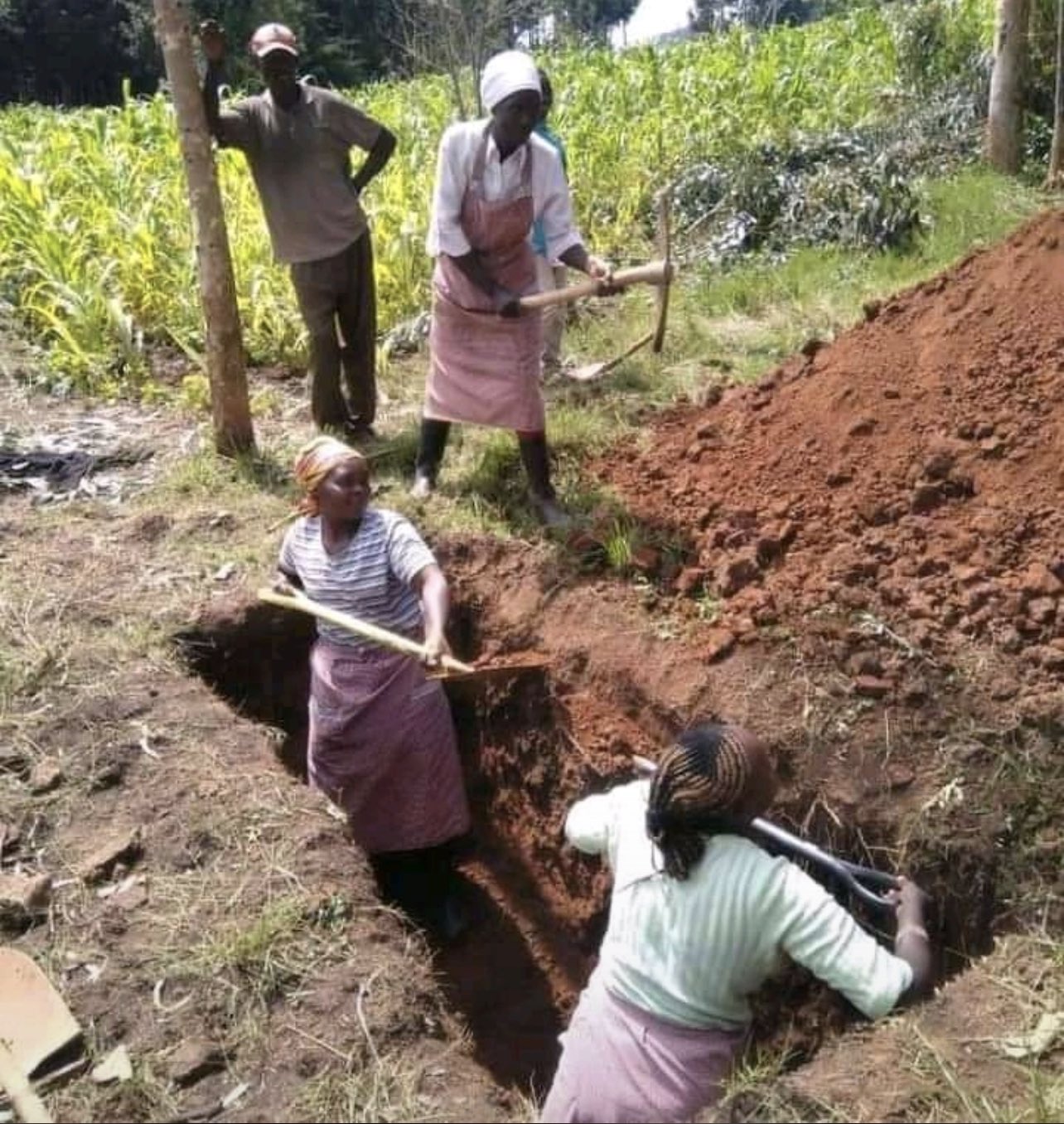Gilbert Njogu (not his real name) had been roaming about his village in search of young men, who could help dig a grave for a cleric who died recently when, on arriving at the gravesite, he encountered a strange sight.
There were a handful of women at the grave, with spades and tools. They were digging the grave.
“It was an astonishing sight,” Gilbert, who spoke to K24 Digital under the cover of anonymity for fear of community reprisals.
“I had never seen anything like that before. The work of digging graves is customarily reserved for energetic young men in this community, so seeing women performing the task was shocking.”
Njogu immediately dropped his spade and took photos of the scene using his cell phone, which he circulated in local WhatsApp groups.
Shortly afterwards, the Internet went wild with photos of the grave-digging
women of Nyandarua county, spurred on with all manner of sensational captions.
Debate was rife with undertones of Nyandarua’s youthful male population that had allegedly absconded its customary role in favour of drink, leaving women with no choice but to do the back-breaking work.
Other wags had it that young men had shunned this particular assignment after leaders in the community, who included the deceased, berated them.
Njogu says ever since he snapped the viral photos, he has become the subject of taunts and subtle threats from sections of the local community, for what some have termed as tainting their image and subjecting young men to national ridicule.
“I am keeping a low profile for now,” he said in Wiyumiririe village, Ol Kalou constituency, near the fresh grave that sparked national debate.
“I cannot be too sure of what some people might be up to. I never expected
the photos would stoke this level of opprobrium.” K24 Digital has established that young men in the village had indeed shirked their role for this particular grave, for what was said to be failure of the deceased to participate in community affairs.
Only a handful of local young men showed up to dig the grave. The deceased was not from the general area, but was buried in the compound of a church he served as a cleric.
But how did the women find themselves digging the grave? “A couple of women and I had prepared tea in a neighbour’s homestead in readiness for the young men who would come and dig the grave,” Lydia Muthoni*, who
was among the women photographed digging the grave, said.
“I was sent to check how many men were there, so we could know the number of cups to carry, and discovered there were only a handful.
The ground was also very hard. Some of the men present were old and frail. When we delivered tea and snacks to the gravesite with the other women, we decided to assist with the digging as the men took refreshments.
That is when Njogu arrived and took the photos”. The women went on to help the men until completion of the task, figuring that the few men available would have been overwhelmed.
“Had we not chipped in, the men would probably not have completed digging the grave,” Muthoni said. “We wouldn’t have wanted that, as the funeral was slated for the following day.
“We felt we had to help, not only because the deceased was a man of God, but also because we wouldn’t have wanted shame to befall the village the following day, with a half-dug grave.”
Muthoni, who also asked us not to reveal her real name, says she has also been subjected to backlash from the community for her unassuming role in the viral sensation.
She, too, is keeping a low profile. Young men are tasked with digging graves in the region, and they are not supposed to charge for the service. Save for a
filling meal and










